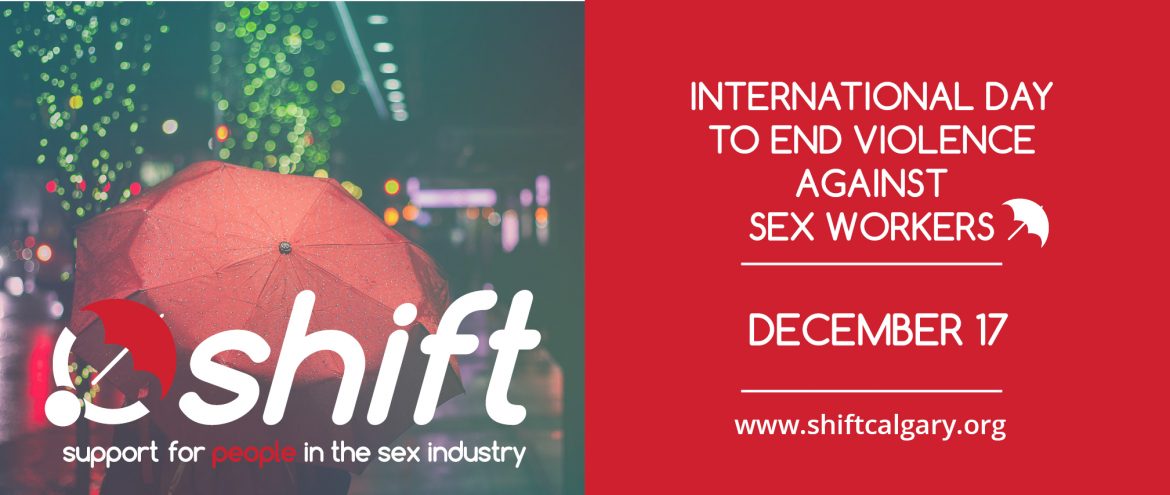December 17th is International Day to End Violence Against Sex Workers (IDTEVASW). The day started in Seattle as a memorial and vigil for the many women murdered by the Green River Killer who had targeted sex workers for over 20 years before being caught. In Canada, hundreds of women working the strolls have gone missing and have been killed. IDTEVASW is a time to remember the victims of Robert Pickton, those identified in the Missing and Murdered Indigenous Women Inquiry, and those who continue to go missing and murdered to this day.
This day is also about resistance. Sex workers all over the world have a rich history of resistance; resistance of stigma and criminalization, and resistance of violence. Sex workers are our family members, colleagues, friends, siblings, and children – Someone you love could be a sex worker: They deserve to be safe.
Sex workers have the right to be safe
While selling sex is not inherently dangerous or illegal, the stigma, shame, and legislation around this industry results in sex workers being seen as easy targets for abuse. Jokes about sex workers being harmed or killed have resulted in a general consensus that sex workers’ lives are not of value. Other marginalizing factors such as racism, disability, sexual and gender identity, poverty, addiction, and exploitation also increase vulnerability to violence. For many sex workers, these complex factors decrease their ability to negotiate safety (such as condom use or screening clients) and to access health and social services, or police protection. This means that violent individuals very often go unpunished when they target sex workers.
There is an urgent need for us all to stand up for the human rights of sex workers. Sex workers have the right to be safe, and are advocates for the decriminalization of sex work. HIV Community Link supports the decriminalization of sex work on the grounds that current sex work-related laws are a violation of constitutional human rights, and increase violence towards sex workers.
Sex workers experience a high rate of violence
In a Canadian study (2014), 18% were robbed, 24% were attacked, and 29% were sexually assaulted in the past year. Beyond work-related victimization, 51% also reported being physically or sexually victimized by an intimate partner in the last 5 years.
In Calgary, it is estimated that there are 1000-3000 people working in the sex industry. The vast majority is advertised and negotiated indoors/online making less than 10% visible in our communities. Shift supports over 100 clients annually. In 2017, 22 Bad Dates were reported to Shift by sex workers who had experienced violence or harassment, and we provided 29 workshops to 550 individuals (health and social service providers, post-secondary students, etc.) who want to better support sex workers in our city. Learn more about our trainings.
At HIV Community Link, we strive to help our clients fight for their safety and heal from trauma they may have experienced while working in the sex industry. We believe sex workers don’t need to be ‘rescued’ and should be treated with dignity and respect, no matter where they’re at. We are honored to work with our amazing clients, both supporting their goals and advocating for their right to be safe. We offer our support to any adult who is currently, or has previously been involved in sex work. Upholding human rights is key to ending violence, exploitation, and discrimination against sex workers and people who sell or trade sexual services.
This day is for them.
To see what else in happening in Canada for recognize this day, click here.

